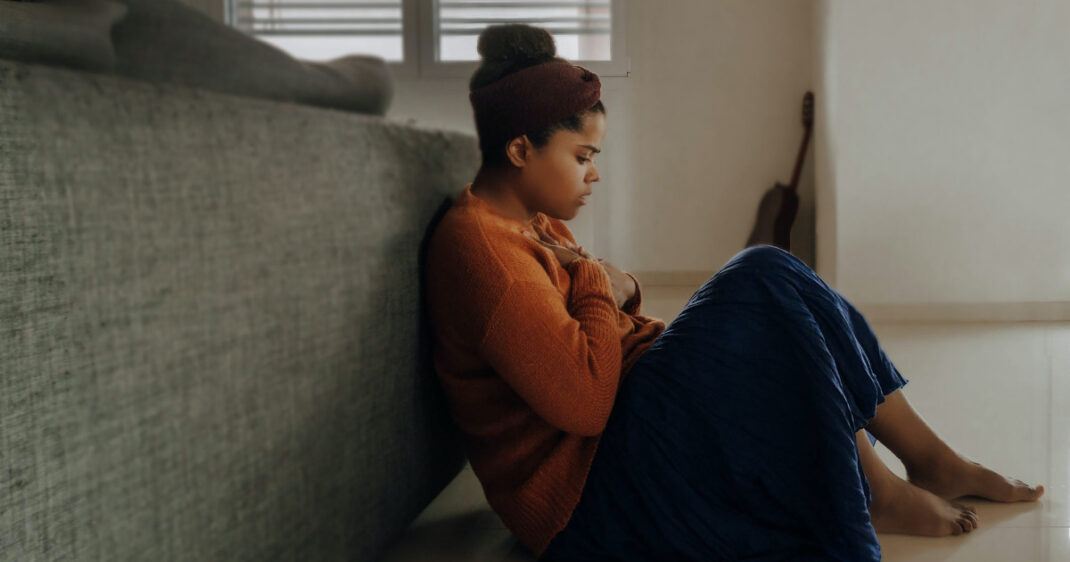Overcoming Social Anxiety for Your Best Self
Overcoming Social Anxiety for Your Best Self
Giving a speech in public is uncomfortable for most people. Talking to a stranger is not nearly as comfortable as talking to a good friend. These things are normal. Some people experience uncomfortable feelings around being social that leaks into every area of their life.
When you aren’t able to function around people, your career will suffer. You may have a hard time with day-to-day activities such as grocery shopping. When the uncomfortable feelings have taken away your ability to show up in the world as yourself without debilitating anxiety, you may have a social anxiety disorder.
Types of Social Anxiety
People experience social anxiety, also called social phobia, in different situations. It will not look the same for everyone. Many people dealing with social anxiety have trouble with these social situations:
- talking to strangers
- giving speeches
- making eye contact during a conversation
- going on dates
- entering a new room
- using public bathrooms
- going to work
- a change of plans
- eating with other people
While one person may be fine with public speaking, they may fall apart when they need to talk one on one with a stranger. Everyone has different feelings attached to these situations, but some common fears that go hand in hand with severe social anxiety are:
- fear of being judged
- fear of being put on the spot
- fear of doing something wrong and upsetting someone
- fear of showing embarrassment
When these fears take over and you no longer can accomplish your day-to-day tasks, social anxiety treatment with a professional is needed. If you experience these fears and they influence your mood and your decisions, there are resources and different methods for overcoming social anxiety and shyness.
The Health Effects of Social Anxiety
Social anxiety feels like you can’t relax. You may experience rapid heartbeat or muscle tension. You may have other physical symptoms like dizziness, stomach pain, or diarrhea. Stress can lead to a number of health concerns. Severe social anxiety can also lead to low self-esteem and depression.
Dealing With Social Anxiety
There are a lot of helpful strategies for people working on overcoming social anxiety. What works for one person, may not work for another. This is why it is important to get to know yourself and be brave enough for a little trial and error.
Prioritize Your Health
Poor physical health can contribute to your mood and self-esteem. Physical health and emotional health go hand in hand. Make sure that you are getting regular exercise and eating healthy. Taking care of your body takes care of your mind.
Make a routine for yourself that you can rely on. Commit to following through. This helps boost self-esteem and your ability to trust yourself.
Make a Goal For Yourself
Having social anxiety does not mean you have to act a certain way, it just means that changing your safe routines will be harder. You know what situations to avoid to stay safe. What if you made a goal to put yourself into one of those situations once a week? If you wanted to, you might find the commitment helps give you that final push you need to try.
Maybe you avoid the community mailbox during the day because neighbors are outside ready for small talk. Commit to one day a week walking to the mailbox during the day. Social anxiety is made worse with surprises. If you prepare yourself to talk to someone just once a week, the chance of someone talking with you will feel less overwhelming.
The more you experience those unplanned interactions, the more confident you will be in your ability to navigate them.
Make a Plan For Yourself
Identify the fears that surround the situations you are avoiding. Check out the examples from above and add any that are specific to you. Now make a plan for if that does happen. Not knowing what to do in the event of a surprise contributes to many cases of severe social anxiety.
For example, you are having a conversation and you embarrass yourself by commenting on a topic you know little about. What are you going to do now? Take the time to plan the best response.
Just thinking through the fearful situations will give you the confidence you need to calmly navigate conversations. Try laughing it off and being honest, “oh I don’t know a lot of about that, I was just trying to make conversation”. Or giving the topic back to them, “oh I think your right, you know more about that than I do”.
Once you have the response, the situation isn’t as scary. The scary part is not having a response or needing to scramble over words to find the right ones. Getting social anxiety help from a therapist can help you develop appropriate responses in difficult situations that will give you confidence for overcoming social anxiety.
Say Yes
Instead of shying away from social situations, look at them as an opportunity to practice your goals. Once you have a plan to practice, give yourself the opportunity to grow. Make a goal to say yes once when you really didn’t want to. Positive social experiences will help you get the confidence to overcome your social phobia.
Some people with social anxiety actually need to learn to say no. If you are constantly being thrown into social situations you don’t want to be in, you will feel like you have no control. Learning to say yes and no intentionally, will give you the control you need to navigate these difficult situations.
Social Anxiety Treatment
The key to overcoming social anxiety and shyness is to act. If you let yourself believe nothing will work for you, nothing will. Social anxiety help from a therapist will give you the tools to try. Overcoming social anxiety does not need to be done alone, and treatment can change your life.

